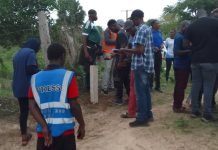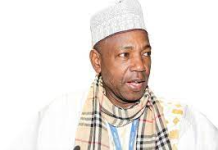As a young “Talibeh” in the “daara”, over 50 years ago, I used to enjoy being sent out in search of ‘Daa”- scrapped from blackened back of cooking pots (marmits). This was used for writing on our wooden board (exercise book) “aluwaa” as exercise books were very hard to come by, then, being sold only in Methodist Bookshop in Banjul or supplied to headmasters by the Education Department for onward distribution to pupils, who had to account for every single page against a school fund of 12 bututs. Pens for these “Aluwas” were called ‘halimma’, made from mature elephant grass stem. In those days, after gathering enough “daa” or ink, we were forced to wash our hands thoroughly with water and lime to avoid getting these ink into our stomachs. I am therefore enquiring if any chemical analysis has been done of the ink in containers filled with European Newspapers imported into the Gambia to qualify them as Safe for human consumption. What is the chemical composition of the papers? Why not recycled them in Europe but dump them in the Gambia? Butter, Mayonnaise, tomato paste, sugar, meat bread, pan cakes, “akara”, to name just a few, are mostly wrapped in these colourful newspapers and we and our children are consuming litres of these ink daily. How is this affecting our health? Some Gambian Newspapers, including your highly respected and educative medium, are also now used. Do you know if the ink/paper used in their printing is edible? In olden days, we and our parents used harmless broad leaves and baobab ropes to wrap food stuff. However, our sub- region’s centurion forest cover is with unimaginable speed and efficiency being slash down for exportation to places such as China!! So our youngsters will never enjoy the rain coat from “Pamparang” Rhun palm leaves bathing sponges from Rhun Palm stock, etc. These were all environmentally friendly and health boosters. As the old adage says “look before you leap”. Before giving directives tantamount to the above caption, Civil Society (if there is any in the Gambia) NGOs, ministries, traders and consumers, etc. should be consulted. This should be best practice for public officers – paid to serve the public. Dear Editor, I am simply a concern citizen responsible for the health of some siblings and I apologise if my sincere concern will cause anyone undue and unintended problems. Halifa Mass Jobe Retired Irrigation Engineer]]>
© 2019 Foroyaa Newspaper - Site by DigiTech Solutions




















